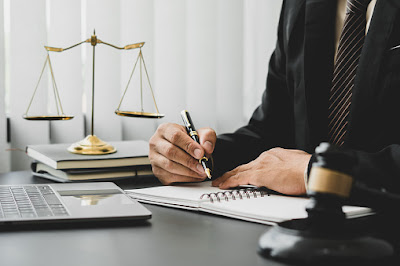Hey, everyone, In today's article, we'll cover part three of our discussion about how to get the most money for a car accident without a lawyer.
In part one, we looked at the kinds of injuries you have, how severe they are, and how hard they'll be to prove. In part two, we looked at negligence and how hard it will be to prove fault for the crash. In today's video, part three, we'll talk about organizing your file, the documents, photos, and statements you'll want to have in order to make the strongest case for the most money. So let's start out by assuming the following.
Your injuries after a crash are minor. They resolve on their own without treatment or maybe one or two chiropractic treatments. And now it's a few months later, and you have no symptoms at all. Let's also assume that you were hurt in a rear-end collision at a stop sign, a situation in which it's almost always going to be the case that the other driver is at fault. So how do you organize your claim and get it ready for the insurance company so you get the most money for your accident claim?
These cases are built on paper. Insurance companies base almost all of their decisions on the records. An insurance adjuster may ask you to sign something called a release so they can get medical records directly from your healthcare providers. If you agree to this, make sure that you don't allow them to collect records from prior to the crash, and don't turn over your mental health records. If an insurance adjuster asks for either of these two things, you may wanna talk to a lawyer first.
See our article on medical records in a car crash case for more on this topic. On the other hand, you may wish to request the medical records yourself and then send them to the insurance company on your own. This'll give you a chance to see what's in there and spot any mistakes. Don't be surprised. It happens all the time.
You'll also need to prove any lost income, so you'll wanna have some pay stubs and a record of how many days or weeks you were out of work. It's also helpful if you can provide a copy of the crash report, although the adjuster may already have this. It can also be helpful to your case if you have photos of the damaged vehicles and a repair estimate or bill for your car, but beware.
If photos show only minor damage, like scratches to a bumper or a few dings, you may not wanna share those because although the science says otherwise, insurance companies like to argue that the minimal damage to the vehicle means minimal damage to the person inside. On the other hand, if your car is smashed up and the air bags go off, a picture of that is going to add at least some value to your claim.
It may also be helpful if you have some photographs of your injuries that you can share with the adjuster. Now, there are some dos and don'ts when it comes to taking photographs of your injuries and the vehicles involved in a crash. See our video on photographing a car accident for more about that topic.
An insurance adjuster may also ask you to give a recorded statement. And while most people feel like having an opportunity to tell their side of the story is a good thing, the truth is most of the time, a recorded statement isn't going to help you as the injured person.
That's because most of the time, insurance adjusters are looking for opportunities to find a way to show you were at least partially at fault for the crash, but sometimes they really do need to just clarify something.
If you are considering giving a recorded statement, check out our video on how to talk to an insurance adjuster for some tips and tricks. If you do have witness statements, these can be helpful to provide in some circumstances. But remember, generally speaking, insurance companies don't pay you for anything that's not already in the medical record.
But if there are unusual circumstances, say, for instance, you're the caregiver for a disabled child, and your injury affects your ability to provide care, this may be worth sharing. Ask somebody close to you, preferably not somebody you live with, to give a short statement, a few paragraphs from their perspective about how the injury affects your day-to-day life.
So your takeaways from today's video, if you wanna get the most money for your injury claim without a lawyer, are these. Number one, documents, like medical and billing records and the crash report. Number two, good photographs of the vehicles involved, the scene of the accident, and your injuries.
And finally, number three, any witness statements concerning fault or your injuries. And you may wanna consider giving a recorded statement of your own. So that's it for today's article. Coming up next in part four, how to prepare a settlement demand.





0 Comments